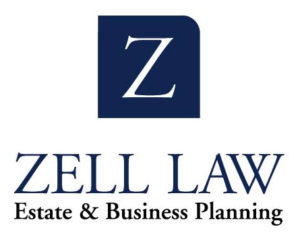By Wayne M. Zell, Esq., of Zell Law, PLLC, an estate and business planning law firm located in Northern Virginia that focuses on helping clients realize their dreams of wealth and freedom.
Small business owners are adapting quickly to the world’s new norms. Whether it’s shifting business to online commerce or conducting meetings through Zoom, Skype or GoToMeeting, business owners, as always, have to think and move quickly to keep their business alive.
Also, more entrepreneurs are working from home offices instead of their brick-and-mortar headquarters. That may mean close contact with family members during the workday or squeezing into tight spaces at home while video conferencing. If this is your situation, keep in mind that you may be able to take advantage of work-from-home tax deductions.
What qualifies for a deduction?
Along with no commute and flexibility, tax deductions are another benefit of working from home. As a small business owner, you have to meet two basic requirements to qualify for the home office tax deduction:
- Regular and exclusive use — The space you use for your office must only be used for conducting business.
- Principal place of business — The home office has to be your primary place for regular administrative activities or responsibilities, such as billing customers, setting up appointments and keeping books and records for your company.
Who qualifies for the home office deduction
You can claim the deduction whether you’re a homeowner or a renter, and you can use the deduction for any type of home where you reside: a single-family home, an apartment, a condo or a houseboat. You can’t use it for a hotel or other temporary lodging.
The home office deduction rules also apply to freestanding structures. You can use a studio, garage or barn space as your home office as long as the structure meets the “exclusive and regular use” requirements.
Here are the conditions you’ll need to meet:
- More on “regular and exclusive” use: The space you’re using for business must be used exclusively for conducting business. For example, using a spare bedroom as both your office and a playroom for your children likely makes you ineligible.
There are two exceptions. If you provide day care services for children, elderly (65 or older) or handicapped individuals in that part of the house, you can probably still claim business deductions, as long as you have a license, certification or approval as a day care center under state law, according to the IRS. The other exception is if you use the office for storage of inventory or product samples you sell in your business.
- More on the “principal place of business” requirement: Although your home office doesn’t have to be the only place you meet your clients or customers, it must be your principal place of business. That means you use the space exclusively and regularly for administrative or management activities, such as billing customers, setting up appointments and keeping books and records, according to the IRS.
How to determine your home office deduction
You can determine the value of your deduction using the simplified method or the more complex method.
- With the simplified option, you aren’t deducting actual expenses. Instead, the square footage of your space is multiplied by an IRS prescribed rate, which is $5 per square foot for up to 300 square feet of space (or up to $1500 per year).
- The regular, more complex method values your home office by measuring actual expenditures against your overall residence expenses. Under this method, you can deduct mortgage interest, taxes, maintenance and repairs, insurance, utilities and other expenses that are attributable to the home office. You would use IRS Form 8829 to figure out the expenses you can deduct.
Simplified version vs. actual expense deduction
The choice whether to use the simplified deduction, if you’re eligible for it, or to deduct actual expenses obviously depends on which would net you the bigger tax deduction.
More on the “actual expense” (i.e., more complex) method
If you use the actual-expenses method, you can deduct direct expenses — such as painting or repairs solely in the home office — in full. Indirect expenses — mortgage interest, insurance, home utilities, real estate taxes, general home repairs — are deductible based on the percentage of your home used for business.
If you meet the IRS’ requirements, you may be able to write off a number of expenses, including rent, utilities, repairs, maintenance and even real estate taxes. Before taking this route, however, it is always a good idea to consult with a business and tax law attorney or CPA. At Zell Law, we are here to help you with these and other estate and business planning matters. For more information, please contact me at [email protected]







